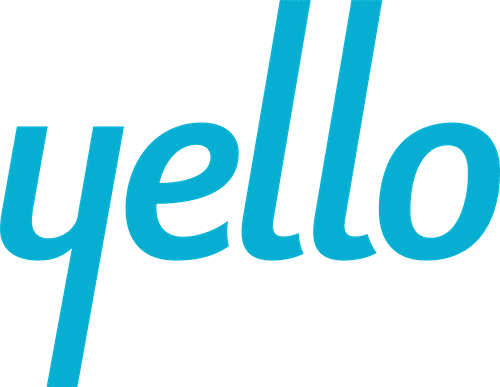[vc_row full_width=”stretch_row” content_placement=”top” v_position=”top” css=”.vc_custom_1532377046632{background-position: 0 0 !important;background-repeat: no-repeat !important;}” font_color=”#163c4a”][vc_column animation=”none” bg_color=”” bg_image=”” column_padding=”no-padding” column_custompadding=”0px 0px 0px 0px” column_center=”” text_color=”dark” custom_text_color=”” text_align=”left” delay=””][vc_row_inner equal_height=”yes” content_placement=”middle” css=”.vc_custom_1532377041242{background-color: #ffffff !important;}” el_class=”shadow”][vc_column_inner width=”1/4″ css=”.vc_custom_1489434799368{margin-top: -20px !important;padding-bottom: 20px !important;padding-left: 40px !important;}”][vc_single_image image=”21184″ img_size=”full” alignment=”center” style=”vc_box_circle_2″ css=”.vc_custom_1545943710785{padding-bottom: 20px !important;}”][/vc_column_inner][vc_column_inner width=”3/4″ css=”.vc_custom_1542323326494{padding-top: 20px !important;padding-bottom: 20px !important;}”][vc_column_text 0=””]We hear about the future of talent, but what does this concept mean and what implications will this new world of work have for business? We sat down with Shannon Gaydos, global talent strategist at Boeing and founder of The 2050 Project, to discuss these important topics and more.
You can hear directly from Shannon, find out how AI will impact human resources and learn strategies to prepare for the future of work by listening to the on-demand webinar: Don’t Get Left Behind: AI for Recruitment is Here. [vc_empty_space height=”20px”][/vc_column_inner][/vc_row_inner][vc_row css=”.vc_custom_1541777776524{padding-top: 0px !important;}”]
Tell us about your background and your current role at Boeing.
I started my career as a recruiting analyst, which was a new role at the time. Applicant tracking systems were becoming popular and I had the opportunity to explore the system and—over the next several years—became a subject-matter expert. That knowledge led me through various rotations within talent acquisition, including HR operations, HR IT, TA technology and, most recently, global talent strategy.
My current role at Boeing requires a mix of strategic planning, technological savvy and the ability to manage an ecosystem of vendors, technology and teams—and align them with the goals of the business.
What is The 2050 Project and what inspired you to start it?
The 2050 Project is an information platform I created to shed light on the forces changing the way we work. I started it because I believe there are a number of key macroeconomic trends across the globe and U.S. that aren’t communicated to the masses. The news today is focused on finance, politics and local events, but there’s a lot of really crucial information missing that I want to make available.
The main focus areas of this project are AI and automation, consumer debt and finances, rapidly aging population, urbanization and humans’ diminishing attention spans. These topics are not broadcasted or synthesized at a large scale. We need to teach people about the current landscape, what the future looks like and what they can do about it. My goal is to disseminate critical information to enable business professionals to make informed decisions.
Why are you passionate about the future of talent?
It’s never too early to think about the future of talent. The entire talent landscape is shifting and too many organizations are years behind in considering what that means. A common example of this shift is the average tenure of a millennials. We know that millennials typically spend less than three years in a job, whereas prior generations spent 20, 30, sometimes even 40 years in one role. Although a lot of people know this to be true, they aren’t thinking about what it means.
Most companies attract to hire and retain. But why is retention a goal when we know tenures are shortening? We know today’s candidates don’t want to stay in a job for 30 years. So it begs the question, should our strategy still be attract to hire and retain? Or should we be thinking about project-based hiring? Understanding the trends and the implications they have for talent acquisition is essential to successful hiring and the long-term well-being of the business.
What does the future of talent look like?
The future of talent is flexible and agile. I think you’ll see more short-tenure assignments, as well as flexible hours and flexible work arrangements like remote work. Something that I personally hope to see is an increase in global assignments. I would love to see opportunities for self-rotation through remote-work months abroad. For example, an employee could work from Argentina for a month remotely, and then head back to the office for the next month.
I think the recruiting model will change, too. I see a shift from talent competition to talent collectives, or companies sharing talent. Three or four companies may work together to build one shared talent pipeline. Candidates have the opportunity to build their careers in this collective of organizations, working three years at one company, three years at another and three years at the next. Succeeding in 2050 comes down to thinking outside the box to recruit in a way that takes current trends and the needs of candidates into consideration when planning the strategy.
What technologies will be important to the future of talent? How will AI play a role?
I think we will see much more automation, machine learning and even blockchain technology in the future. The recruitment process today is broken on several fronts, perhaps the most concerning is the ubiquitous “black hole” of resumes. If you ask what keeps me up at night, it’s the tens of thousands of job seekers who probably receive little more than an auto-response from our systems before getting lost in the sea of technology. If AI can bridge the gap to address candidate questions and status updates, and lead to better outcomes for both candidates and employers, I am all for it.
What steps can talent acquisition leaders take to prepare for the future?
When you look to 2050, some trends are clearer and more actionable than others. For example, you can prepare for an aging workforce. Aging is guaranteed, and we know that to combat an aging workforce, we need to attract the next generation of talent.
It’s murkier to predict what the talent world will look like in 2050. There’s an estimate that says throughout their careers, millennials and Generation Z will hold 17 jobs for an average tenure of three years across a variety of industries. That’s something we haven’t been up against before, and it’s something that doesn’t come with a foolproof strategy.
The key for success here is to find the longest-term trends and act on them. No one has a crystal ball, but if you pay attention, you will find insight that you can use to shape your strategy.
What excites you most about the future? What concerns do you have?
You can’t transform talent if you aren’t keeping an eye on the trends and working to understand them. I want to connect with my peers to talk about these issues and encourage people to broaden their thinking and prepare for the future of talent acquisition. I am excited about a new world of work. My biggest concern is that some of our political and business leaders are not taking current trends seriously enough, and we are putting ourselves at enormous risk financially and economically.
How do you envision the role of the recruiter evolving?
Ideally, recruiting roles will shift from managing ATS workflows to talent advisory roles in which they have more time to spend with their hiring managers and the business. Automation and AI will need to succeed in taking mundane tasks away from the recruiters to afford them more time. They will need to adapt to working in tandem with the technologies of the future.
Connect with Shannon on LinkedIn and Twitter and learn more about The 2050 Project.


